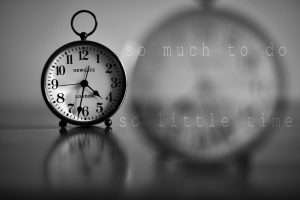Posts by Jael McHenry
At the time I write this, we have no idea what the political future of America looks like: with the conclusion of voting in the 2020 U.S. election imminent on November 3rd, I’d venture to say no modern American election has ever quite looked so uncertain from so close a vantage point.
But politics isn’t just elections, and there’s a lot more than U.S. Presidents to consider when one thinks about politics.
This topic rose to the top of my brain recently when I was reading a fairly recently published romance novel. I love romance; I’d say I generally read books in four or five genres in any given month, and for the past couple of years, romance has regularly been one of those genres. I enjoy both the way category romance always delivers on its promise (happily ever after, or at least happy for now!), and the ways a wonderful author can bring inventive, surprising new elements to the form.
I was midway through a contemporary romance from an author I’d never read before, featuring a hero who’d moved from one of the Dakotas to a major West Coast city. At some point it is revealed that not only does the hero own a gun, but he retrieves and loads it in the presence of the female love interest, whose only reaction is one of clear approval and appreciation.
And I thought: wow, that is not something I expected to see.
But why didn’t I? Because although I grew up in a Midwestern rural setting, where hunting was common and so were guns, a lot of things have changed since then. I’m now far more concerned about the prevalence of gun violence in American society. The negative influence of the NRA. The fact that even after Sandy Hook, after Vegas, nothing seems to have changed. I respect the idea of responsible gun ownership but worry that it may be impossible to ever agree on what, exactly, counts as “responsible.”
And I thought: wow, I could never put a gun in a book in such a casually approving way.
That’s why I can’t agree with the idea that we should keep our politics out of our books. Because I don’t think the author of that romance novel thought, “Gee, I want to put something positive about guns in my book!” I think there’s a very good chance that she put it in there without even really thinking about it. The heroine is worried because she heard someone rattling the knob of her locked back door a few nights before, in a house where she lives alone; when she tells the hero, he immediately jumps into action to protect her. That’s presented as completely positive. And given that in this same book, the author takes pains to break down stereotypical gender dynamics – while her ex-boyfriend was not cool with purchasing feminine hygiene products for the heroine, the hero doesn’t even blink at it! – I found it especially glaring.
They say that when certain readers tell authors to “keep your politics out of your books,” what they really mean is, “keep politics I don’t agree with out of your […]
Read MoreThere are no easy answers in writing and publishing, right? When I went through some of the biggest changes in my writing career — for example, getting an agent, or inking my first publishing deal — I thought, “Oh good, now everything’s different.” Surprise! Some things are different, but some things remain very much the same. And no matter what stage of your writing career you’re in, whether you’ve published zero books or two dozen, you never really get to stop worrying. All that changes is what you’re worrying about.
So! Why am I claiming that there’s one way to make everything better in your writing and publishing career? Because there’s one thing that you might be particularly worried about doing, and I’m here to tell you it’s the one thing you need never worry about.
Here’s the one thing you can always know it’s right to do: ask.
Not sure whether you should follow up on hearing from that agent you sent your full manuscript to three months ago? Ask. Wondering whether that fellow writer you met at a conference one time might be interested in exchanging manuscripts for a beta read? Ask. Thinking it might be a good idea to ask that well-known author you met at a reading once to take a look at your soon-to-be-published manuscript for a blurb? Ask. Not sure whether your publisher is delivering the marketing punch you want and think your agent might have an informed opinion on the matter? Ask, ask, ask.
There are ways to go about asking wrong, sure. Don’t follow up with agents too frequently or too aggressively. Don’t hassle fellow writers. Don’t presume that the author you met once will definitely deliver a blurb, and certainly don’t trash them on social media if they don’t say yes or even respond. (I’ve seen it. It’s not pretty. And it doesn’t make them look bad; it’s not a great look for you.)
But a humble inquiry? From you to virtually anyone involved in the publishing process?
Read MoreI’m tempted, of course, to make this the shortest Writer Unboxed post in history. (“Is writing work? Yes.” Done!)
Writing is work. Hard work, sometimes. Frustrating and challenging and exhausting, yes, those too, all too often. It’s work because we sometimes get paid for it; it’s work even when we don’t. It’s work because it takes genuine effort, thought, focus. It’s work because it isn’t play.
Except, of course, when it is.
Have you ever had a work in progress you love so much, it feels like play? Like you genuinely can’t wait to sit down and dive in, to discover where the story and the characters are going? Like your imagination gets to go hog wild, and you’re just along for the ride?
Writing is still work then, but it’s also play, and it’s glorious.
Another temptation: I’m tempted to say that if your work in progress doesn’t feel like that, then you’re writing the wrong story. However! There are times during every single book I write where it feels like a long, hard slog. Like hard work. Like I want to give up. (Sometimes I do give up, even; it never sticks.) And every single time, the book has turned out fine. Better than fine. It’s always work I’m proud of when it’s done. Even if, during the process, there were times I thought I’d rather kickbox with the Rock than tackle a particularly snarly chapter.
So what makes the difference between writing that’s work and writing that’s both work and play?
Personally, I don’t know the answer. For me, it’s not about genre, though I will say I’ve been feeling it more lately, in the new genre I’m writing in. (My pseudonym keeps busy!) It isn’t about whether or not the book is under contract — the pressure I put on myself generally feels worse than any deadline pressure, at least so far. And it isn’t entirely about the stage of the work, though the words certainly come faster in the early writing than the later, get-it-right revision stage.
I think it has more to do with alchemy. When all the right factors are present — the story is there, the words are flowing, even the problems are interesting problems — the work of writing becomes a work-play hybrid. You get out of your mind and into the story. You let go of the work and somehow, it makes you work harder.
Q: What makes your writing work feel more like play?
Read MoreAs writers and as people, most of us have been told over and over again to push ourselves. You don’t know what you’re capable of until you try! Reach for the stars! Writers often set ambitious goals — daily word counts, strict deadlines — to move our writing forward. On one hand, I’ve never agreed with the advice that you absolutely have to write every day. On the other hand, in certain stages of writing, I find it helpful to have a structure that forces me to the page on the regular, like NaNoWriMo or Jami Attenberg’s #1000daysofsummer. The writing may come out great or terrible — most often, a mixture of both — but I’m always glad to have words on the page that weren’t there before, even if they’re not the right words, and I can’t get there by only writing when I feel like it.
But we’re also living through particularly challenging times, with levels of fear and anxiety and anger that seem to rise by the day. In order to make it through, we’re often counseled to take it easy on yourself, lower your standards, acknowledge that you can’t do everything. Everyone’s challenges are different, but we’re all struggling, and in the struggle it’s essential to sort out the necessary from the nice-to-have. Writing can feel indulgent when there are so many matters worthy of our attention, literal issues of life and death playing out across the country and around the world. When you consider that, writing goals can feel frivolous — how could a few more words on the page even matter?
How do we balance these competing forces? Do we? Is the very concept of balance a luxury that got thrown out the window when 2020 came roaring in?
Read MoreSuccess in publishing is always at least partly a matter of luck. The writing itself, we can largely control: our minds gin up the premise, our will drives the process, our hands type the sentences. Beyond that, all sorts of things can affect the success of a book. On the particular day your manuscript hits their desk(top), agents and editors will say yes or no for their own set of reasons. When you do finally publish, someone else might happen to release a book with a similar-sounding premise around the same time and claim that space in the public consciousness. Reviews may or may not go your way. The lists of things beyond your control is basically endless.
And then there’s the virus.
Disruptions due to COVID-19 have turned so many things upside down, and publishing is no exception. Bookstores are closed to the public; publishers are still acquiring and putting out books, but everything from book tours to trade shows to paper availability is affected, and then of course there’s home life, where kids are suddenly underfoot and/or other sources of income have dried up and/or we’re all so driven to distraction by anxiety and fear that sitting down at the keyboard and putting fresh words down on the page seems all but impossible.
These are tough times. They are also the only times we’ve got.
I won’t say to look on the bright side, because it isn’t a matter of saying to yourself Buck up, Buttercup, and then everything will be all right; for far too many people, in far too many ways, everything will not be all right.
But I will say that stories have power, and unlike so many other aspects of life, the story you tell yourself about these dark days is entirely within your control.
Read MoreIs there anything more precious to a writer than time? It’s the resource that makes all the difference. Time to think. Time to write. Time to edit. Time with readers. And we need time for all the other things in our lives, of course, which can be deeply challenging to balance, especially as we head into the holiday season.
You may have heard that the way to find time to write is not to view it as “finding” time at all. Instead, say the so-called experts, you need to “make” time.
The reasoning goes thusly: finding is too passive, as if you are just waiting around for the time to show up. And maybe there’s some truth to that. How easy is it to shrug off something we didn’t get around to doing by saying “I just couldn’t find the time?”
Make has more muscle to it. We forced that time into existence! We made it! Go, us!
But I don’t think that’s the right verb either.
December 1st was the deadline to turn in the first draft of my next novel to my editor, the most challenging book I’ve written, requiring more research and more narrative complexity than I’ve ever tackled before. I also hosted and cooked Thanksgiving dinner for over a dozen people last week. No one twisted my arm on either project; I signed on to both willingly. With a major writing deadline clashing head-on with an important personal and family event, I didn’t “find” time to write over the past week; nor did I “make” time. I didn’t spend it or save it or waste it or fritter it away.
Instead, I chose times for each task. When would I write? When would I give myself permission not to be writing? How would I manage my non-writing workload with the same attention and care? I chose to ask friends to bring side dishes to Thanksgiving dinner, lowering the number of dishes I needed to choose time to cook. I chose to simplify the appetizers and sides I did make. In the days leading up to Thanksgiving, I chose to schedule time to clean up the house over several evenings after my writing time, figuring I didn’t need to be mentally fresh to put away shoes and recycle stray magazines. The day of the event, I chose to let my kids set the table. (They did a terrible job and everybody loved it.)
I chose to schedule babysitters in large chunks of time on the weekend. I chose to stay up late some nights and wake up early some mornings. One night I chose to go to bed at 9pm, because I needed to recharge in order to have enough energy for a final push. I chose. I chose. I chose.
And while neither my Thanksgiving dinner nor the book I’m turning in is precisely perfect — what dinner ever is? what draft ever is? — I feel absolutely content with the choices I made. Because I chose to make them.
The right verb can summon a character, move a plot, define a scene. We spend a lot of time choosing exactly the right verbs for our writing. Sometimes, it helps to choose […]
Read MoreThere are plenty of great things about writing and publishing novels. But today, I’m not here to discuss any of them.
No, today it’s time to talk about three of the necessary evils a novelist deals with along the way. While these aren’t the only three tough tasks we have to tackle, they’re the ones I’ve heard writers decry most often as they work on their journey toward publication.
You need to write a query letter (ugh). You need to write a synopsis (ouch). And you need to be able to sum up your entire novel in one simple sentence (how?!).
So since each of these is a necessary evil, I thought I’d address a) just how necessary and b) just how evil each one is for the average writer. Let’s begin!
The Query Letter. How necessary? 9 out of 10 if you’re seeking traditional publishing; if you’re going the indie route, make that a 0 of 10. How evil? Mmm, let’s say 7 or 8 out of 10 for most of us.
Look, query letters are tough. But the job of the query letter isn’t to describe your entire novel. It’s just to whet the appetite of the agent to ask for more. If you can frame out what makes your novel especially intriguing, include any special credentials that show why you’re the right person to write it, and leave the agent wanting more, you’ve pretty much got it covered. Easier said than done? Absolutely. A necessary part of the process for hooking an agent? Pretty much totally, unless you happen to hook someone in a pitch session at a conference, and even then, you’ll probably want some kind of query/cover letter to re-introduce yourself when you send your materials along.
The Synopsis. How necessary? Maybe 7 out of 10. How evil? Yeah, that’s a 10. It’s the most.
Read MoreMy five-year-old chose a Little Mermaid birthday cake this year solely for the toy it came with: a little plastic Ariel riding a little plastic ocean wave. To minimize chaos at the house, we had the party at a park, and afterward, we packed everything up in various bags, boxes and purses and toted it home. For 20 long minutes, we could not find the Ariel. Did it get put by accident in the trash? Left behind? Taken by a party guest? We went through every bag (including the trash bag, ugh) and thought we were out of luck… until I looked in my purse, where someone, probably me, had thought to stash the toy so it would be safe. Toy was reunited with child, happy ending achieved, yay.
It’s always in the last place you look, goes the joke, because once you find it, you stop looking.
Sometimes writing feels like this kind of blind, semi-panicked hunt. Should I try third person instead of first? Add a subplot or subtract one? Make this character older, younger, more flawed, more likable, more active, funnier, smarter? You don’t know what’s right because you’re searching in the dark, hunting for something you think might be lost, uncertain whether you’ll find the right answer in the next 10 seconds or, well, never.
It’s not fun when you’re searching for a toy you know your daughter wants desperately and it’s not fun when you’re trying to make your book the best book it can be.
As a writer who takes at least five or six drafts to really nail a book, I often wish I could skip straight to that fifth draft. Would I be able to cut down on the rewrites if I outlined more? Outlined better? Sat down with my editor or agent and workshopped the synopsis? It seems like I could save everyone, primarily myself, a lot of trouble that way.
But no matter what I try, it just seems to take me a while to get those drafts where I want them to be.
Read MoreOne of the secrets to balancing a busy life is doing more than one thing at a time. We listen to audiobooks while we drive, manage a hands-off dinner with our Instant Pots, send work emails from our phones in the grocery store checkout line, and so on and so on.
This isn’t necessarily a bad thing for a lot of us. The opposite, even. Without multitasking I’d get a lot less sleep. I’m guessing many of you, balancing writing with myriad other priorities, are in the same boat.
But I’m in the phase of writing a new book where I have an endless supply of knotty problems to think through, and as I multitask, I’ve realized that thinking through those problems requires a new strategy.
I need to make room for silence.
Reading is both necessity and luxury for me, both work and leisure. Any writer who doesn’t read constantly, both classic and current books, is neglecting one of the best ways we have of becoming better writers. So for my entertainment reading, I’ve largely shifted over to audiobooks. My ears are full of thrillers and romances and historical fiction and more anytime I’m behind the wheel of a car or satisfying my Fitbit’s endless thirst for steps.
But now that I’m in this active phase of writing, when I need to ponder character development and plot twists and how to write my way out of the hole I’ve written myself into — I’ve found my audiobook obsession is standing in the way. Even music occupies my attention in a way that doesn’t let me puzzle out the best way to depict a turning point between characters. For that, nothing but silence will do.
Read MoreHappy April Fools’ Day! In honor of the holiday, I’ll be giving highly prescriptive, condescending writing advice that sets arbitrary limits, reinforces inflexible constraints, and just generally crushes your creative spirit. For fools, from a fool.
*throws confetti, the most foolish of celebration tactics*
One of the best gifts you can give yourself as a writer is time.
Time is a scarce commodity for many of us. Anyone with obligations to meet beyond writing — school, work, family, a near-countless litany of other responsibilities — knows that every minute spent writing is a trade-off. Time spent writing is time not spent doing one of these other things.
As we enter the holiday season, time to write may be even harder to come by than it already is. Nothing eats up a day like a cross-country flight to Grandma’s house, and if you’ve ever managed to make meaningful progress on a novel on an airplane while in the company of young children, you are my new personal hero.
So as I considered a potential list of gifts that writers might want to give themselves for the holidays, everything on the list came down to a single item: time.
Except here’s the trick of it: sometimes, the gift you need is time spent writing; sometimes, the gift is time spent not writing.
Read Moreimage by Sheng P.
My novel The Kitchen Daughter was published in 2011. Seven years is not that long ago, really, but for many reasons, it feels like a different lifetime. The world has changed a great deal in less than a decade, and publishing has changed along with it—in ways both negative and positive.
When I made the decision to write a novel from the perspective of a character on the autism spectrum, such books were relatively rare on bookstore shelves. Basically, if people had read a book with an autistic narrator, it was almost certainly Mark Haddon’s The Curious Incident of the Dog in the Night-Time. (Which of course, in certain circles, gave rise to the typical publishing conversation of “Isn’t your book kind of like a book that already exists?” And the standard, exasperated answer, “Yes, except not at all.”)
In the beginning, my decision to write from an autistic character’s perspective originated from a logical place, not an emotional one. I love to cook, and when I prepare meals, I’m doing it to connect with people. I wanted to write about someone who cooks without any intention of connecting—someone isolated partly by circumstances and partly by choice—but who comes to realize that she can use cooking to connect.
When I began writing the book, I had recently met the writer John Elder Robison, whose memoir Look Me in the Eye brought what was then called Asperger’s Syndrome to the attention of many. After delving into everything I could find written on the topic, including first-person accounts written by women on the spectrum, I made the decision that the narrator I wanted to write had undiagnosed Asperger’s, and the story unfolded from there. I dug in, learned everything I could, worked to define Ginny’s unique experience, enlisted a host of readers who could tell me what didn’t ring true, and wrote and rewrote until the book was the best I could make it.
If I were facing this decision in 2018 instead of 2008, would I have made the same choice? I’m not at all sure.
Read MoreTalking with a group of aspiring writers recently, I was struck by how many of them felt like everyone in the publishing world was against them. “Why are agents so narrow-minded about what they want?” one asked. The frustration was nothing new — anyone who’s spent time talking to writers in person or on the internet knows frustration is the meat we feed on — but I was particularly uncomfortable with how much of the frustration was directed against individual people, rather than a system that can’t give all of us what we want all of the time.
So I thought I’d do a handy list of who and who isn’t your enemy in the publishing world. (Keeping a list of enemies isn’t something I generally recommend, for all sorts of reasons, but I think you’ll see how this one can be useful.)
OK, you’re asking, so if none of those people are arrayed against me, why am I so miserable? What’s keeping me down? Indeed, I have some thoughts on that front as well.
Read More





















